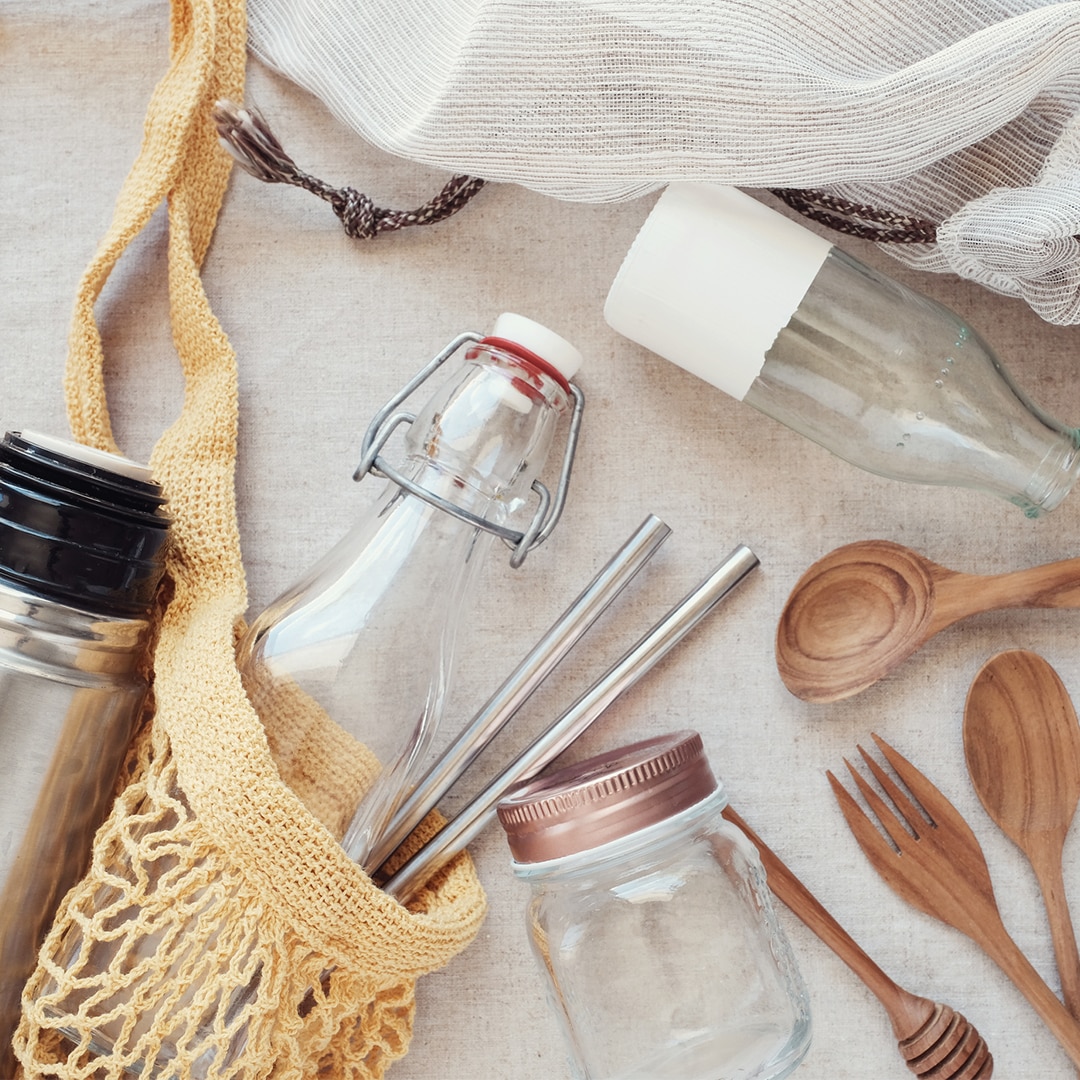Did you know that some of the best things you can do for the planet can also have a positive impact on your bank account?
You’ve probably heard that conserving energy, buying less and growing your own food can help you save money while benefiting the environment. In addition to such conservation efforts, some smart investments in eco-friendly choices can save you a good deal of cash over the long term.
While in some instances, environmentally preferable products cost more, in many cases doing right by the planet will save you money. Sometimes A LOT of money.
Whether it’s refilling your water bottle or bringing your own bags to the grocery store every week, little by little these eco-friendly moves can add up to big savings. Far greater savings can be had with larger investments, like solar panels or an electric car.
Whether you’re ready for a bigger investment or want to start small, these eco-friendly upgrades can save you some money while protecting the planet.
Another angle to consider: Many eco-savvy investments are also investments in your health. When you avoid plastic and air pollution, you’re protecting yourself from chemicals that may have long-range impacts on health.
Below are some of the best eco-investments you can make right now.
Ditch disposables: Save green by going green
A lot of us have been duped into thinking that disposable everything is the only way to go, at an enormous cost to the environment and our wallets. Investing in reusable products means that we can skip expensive and wasteful single-use items like plastic water bottles, paper products, batteries and more.
1. BYOB – Bring your own beverage
One easy place for many of us to start is with our beverages, whether it’s your morning coffee or the water you take to the gym. When you invest in a sturdy metal water bottle or travel mug, you’ll get thousands of uses out of it before it needs replacing.
Picture what thousands of plastic water bottles look like, and consider how much they would have cost you to buy them. Ditto with daily lattes or smoothies. Now think how you can invest the thousands of dollars you’re not wasting on single-use bottles and cups. (Hint: Get even greater return by putting that money into some of the environmentally-positive things below.)
An added bonus when you BYOB: You can ensure what’s in it is healthier for you, from the organic coffee you choose, to water with all the chemical contaminants filtered out.
2. Pack an eco-smart lunch
As is the case with drinks, if you’re buying yourself takeout lunches every day, calculate what the waste it generates looks like every year and how much extra money you’re spending over packing your own lunch.
Some durable and eco-friendly containers allow you to pack healthy meals and snacks that will add up to some big savings (and likely healthier choices) year in, year out.
If you tend to use a lot of plastic bags, eco-friendly alternatives like reusable containers that last for years can help you save on wasteful single-use baggies.
Containers that help keep produce fresh will also pay for themselves quickly by keeping costly produce out of the compost bin.
3. Clean with cloth
Does your family use single-use paper towels? Americans wipe their way through a staggering 13 billion pounds of paper towels every year. In addition to the millions of trees cut down and billions of gallons of water used to make them, those paper towels cost us a collective six billion dollars!
Investing in a supply of reusable hand towels and cleaning cloths will save you money over the many, many years you can use cloth instead of paper. Sturdy dishcloths do a better job of wiping down counters and mopping up spills than disposable paper towels, without the waste and expense.
If you like the convenience of a roll of paper towels, you can get reusable paper towels that come in a roll and can be washed and reused.
4. Choose to recharge
So many devices require batteries, and if you’re still using alkaline batteries you’re literally throwing your money in the trash. A pack of rechargeable batteries costs only a little more than single-use alkaline batteries but can be recharged and reused hundreds of times. Plus, you’ll never find yourself out of batteries.
Next-level investment: green your ride
How we get around is one of the biggest factors in our personal environmental impact. If you live somewhere where mass transit is an option, investing in a transit pass will save you money on maintaining and driving a car while drastically cutting your contribution to environmental pollution. The American Public Transportation Association estimates that the average citizen saves $10,000 annually when choosing public transit over owning a car.
Investing in a good commuter bike will save you even more. Plus biking is an efficient way to fit in more time for healthy exercise.
If you live somewhere you need a car, choosing the most fuel-efficient option will pay for itself and then pay you dividends over the life of the car. The market for electric vehicles and hybrid vehicles has expanded dramatically, and though in some cases the sticker prices are higher than for comparable vehicles, rebates and fuel savings often more than make up the difference.
A 2018 study from the University of Michigan found that electric cars cost half as much to fuel compared to their polluting combustion-engine counterparts. Electric car owners also save on maintenance, since electric cars have so few moving parts compared to gas-burning vehicles.
Save big with renewable energy
Though they involve some money up front, solar panels are a no-brainer investment in a cleaner future. With federal tax credits and local rebates, solar panels typically pay for themselves and start paying you in 5 to 10 years.
Many years ago, we upgraded the insulation in our 100-year-old home and installed a geothermal heating system and solar panels. Our power company now pays us, since we generate more energy than we use. As energy prices rise, the returns on investments in renewable energy climb as well, making them an excellent way to diversify your portfolio while greatly shrinking your carbon footprint.
The federal tax credit for home solar panels has been extended through 2024, though the rate drops from 26% to 22% at the end of 2022. Get yours and start saving as soon as you can! Many solar companies and local governments offer financing to bring solar in reach for more homeowners.
Don’t own your own home or have too much shade? If you can’t or don’t want to install panels on your roof, joining a community solar garden offers another way to reap the savings of solar energy, typically reducing your energy bill about 10% starting on day one.
Ready to live greener and save? Whatever level you choose, these eco-friendly investments will benefit your bank account and the planet.
Celebrate Mama Earth with Vitacost! Explore our Earth Month shop for eco-friendly swaps, products made from recycled materials and more. Plus, shop and learn about brands that make a positive impact on the planet.


